sick rooster symptoms
Nothing is worse than a sick animal in our care; this list of sick rooster symptoms is meant to help you identify issues before they get out of hand.
Raising chickens that are healthy is the best way to have a flock that is thriving. Know the signs something is off so you can step in before it’s too late.
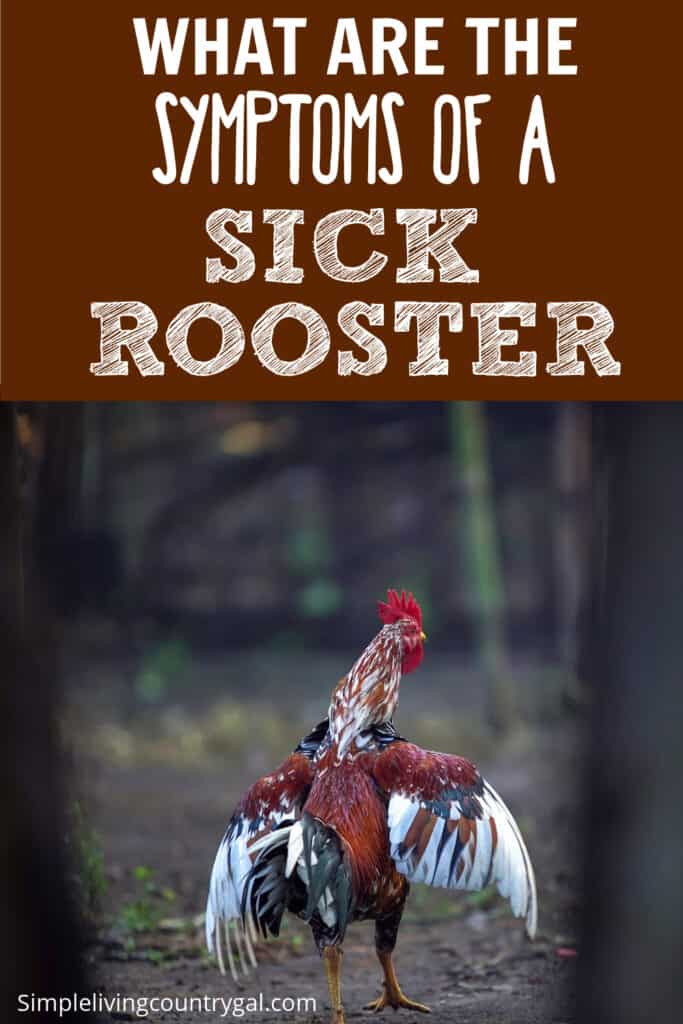
Disclaimer: In accordance with FDA guidelines, the information and products offered on this website are not intended to diagnose, treat, cure, or prevent any disease. I am not a medical professional. Before administering any hands-on care, treatment, or medications to your animals, please contact a veterinarian first.
Roosters are a crucial part of any backyard setup, providing protection to the entire flock and fertilization to their hens. Even though they look intimidating and strong, they can still become sick or injured. Roosters are like most birds and tend to hide their symptoms, often until it is too late to help. This means we need to be vigilant in knowing our birds so we can more easily recognize when something is off.
sick rooster symptoms
When it comes to signs that your rooster is sick, these are the most common symptoms to watch for. Please remember, if you have any concerns or questions, to reach out to your local vet. It’s true not many veternarians deal with chickens, but often they will answer your questions and give advice and, in some cases, even medicine that you can administer at home.
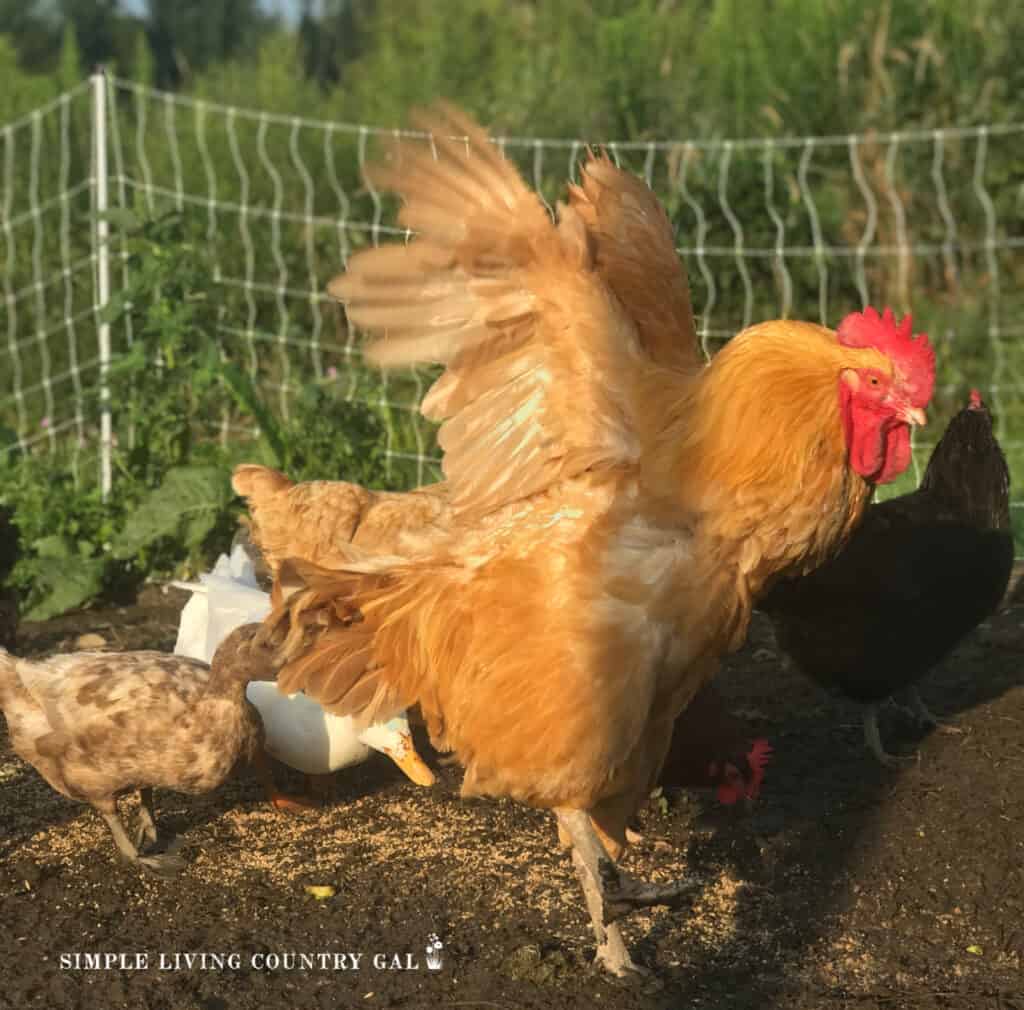
Tired or Lethargic
One of the most common symptoms of a sick or injured rooster is lethargy. A healthy rooster is active and engages with their hens, but a sick rooster would prefer to sleep, sit still, or avoid any movements altogether.
Off Feed
Another telltale sign is a rooster that is not eating. It’s true they may stand back until the hens have eaten their fill, but if you notice your rooster not eating after that may be a sign something is off.
Many times, being off feed is the only symptom you may see, and for that reason, it is important to always watch your animals at feeding time.
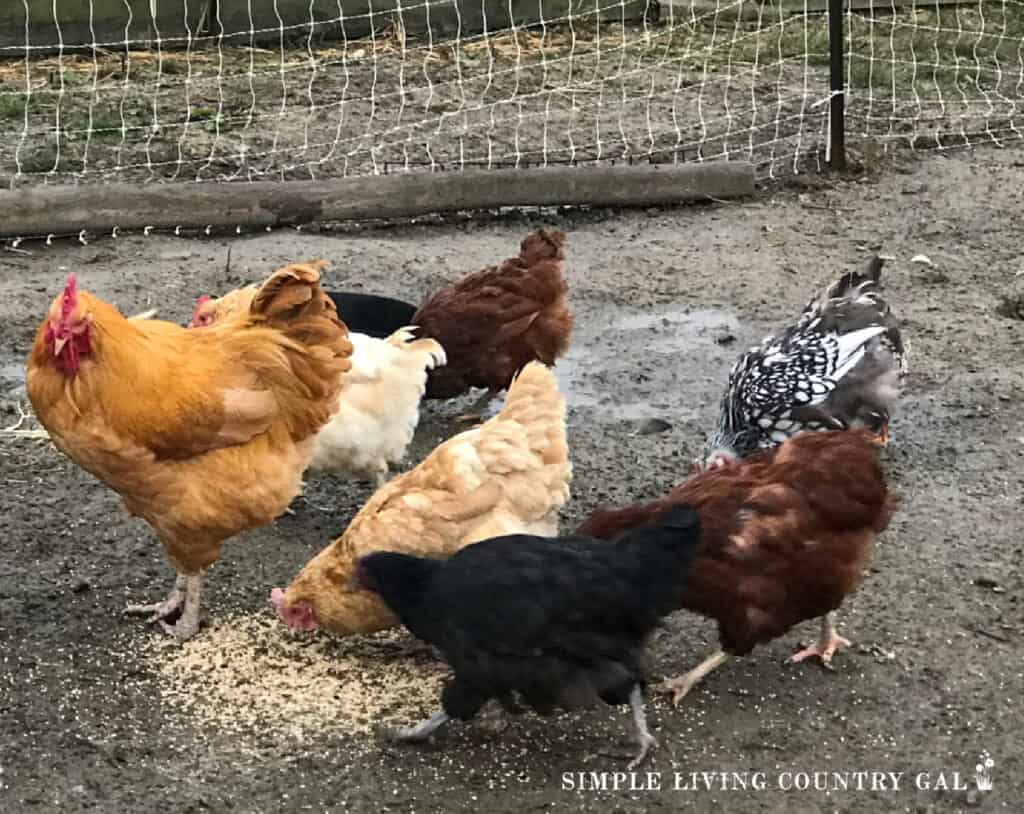
Weight Loss
If you see your rooster is losing weight, this is an important symptom that something is wrong. Touch your rooster and check its weight and condition. You should feel a plump breast and thighs. If you feel bones, this usually means there is a digestive, parasite, or health issue.
Rapid or Shallow Breathing
A rooster that is panting or breathing abnormally is a sign of a respiratory issue like a cold or pneumonia. It can also mean dehydration if you notice this on a really hot and dry day.
Abnormal stool
A healthy rooster stool should be soft to somewhat firm, is brown or grey with some green or white. An abnormal stool would be slimy, foul-smelling, runny, or watery. This usually means there is a digestive issue, worm, or parasite issue.
Droopy or dull comb and/or wattle
A rooster’s comb and wattle should be brightly colored and firm. If your rooster’s is dull or droopy, this can mean a respiratory issue or lack of blood flow.
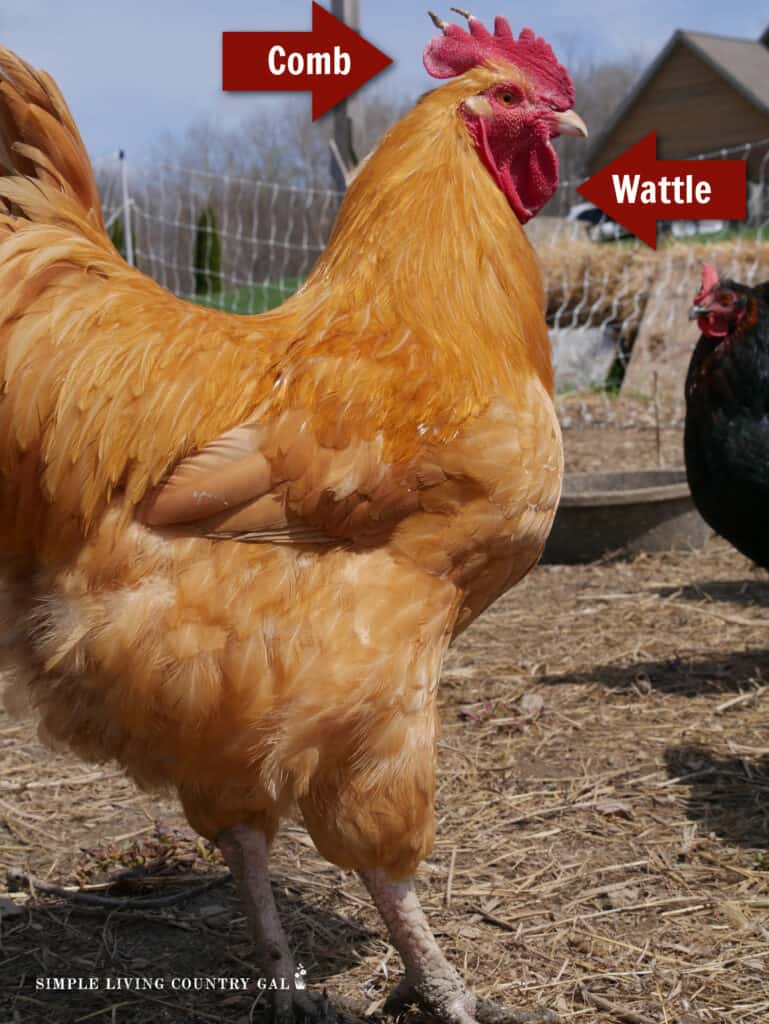
Possible Causes of Rooster Symptoms
Each of these symptoms can have its own meaning making it impossible to give you the exact answer to what is wrong. Instead, we have a list of common issues you may find with your sick rooster. This is a good place to start when trying to diagnose what is wrong with your bird.
Parasites
Parasites or worms are a common issue with poultry and can cause any or all of these symptoms mentioned above. The biggest signs your rooster has worms are weight loss, abnormal stool, and being lethargic.
How to Treat:
- If you suspect worms or parasites, take a stool sample to your vet and have them confirm.
- Ask them for treatment and follow their instructions.
Respiratory
Roosters can also suffer from respiratory problems like humans. They can get affected by illnesses like a common cold, the flu, or bronchitis, which can cause difficulty breathing, coughing, and sneezing. If you notice a discharge from their nostrils, you should quarantine your rooster to prevent the spread of the illness to other birds in your flock.
How to Treat:
- If you notice a respiratory issue with your rooster, check its nose and eyes for any discharge.
- Give VetRx for Poultry, which is a natural remedy for colds in poultry.
- Separate them from the flock so you can keep their illness from spreading.
- Contact a vet if your rooster is having difficulty breathing.
Dehydration
If you suspect your rooster is dehydrated, it is important to act quickly before it gets out of hand.
- Take him to a cool place out of the sun.
- Put them near to fresh water and stay near by until you see they are drinking.
- You can also offer electrolytes made for poultry or a small amount of Gatorade in a pinch.
How do you get a chicken to drink water?
If you have a chicken that is not drinking water, try dipping its beak in the water to see if that encourages it to drink. Sometimes they forget to drink, and feeling the cool water on their beak usually is enough to get them started.
You can also drop a few treats in the water, such as corn or peas.
Injury
Roosters often get injured during breeding or defending the flock from predators. Look for obvious wounds, dried or fresh blood, or any issues walking that may indicate an injury to their feet or legs. Another reason for injury could be from henpecking within the flock.
How to Treat:
- If you notice any open wounds, clean them with an antiseptic and watch for signs of infection.
- If the injury is severe, separate your rooster so he can heal without interference from the flock.
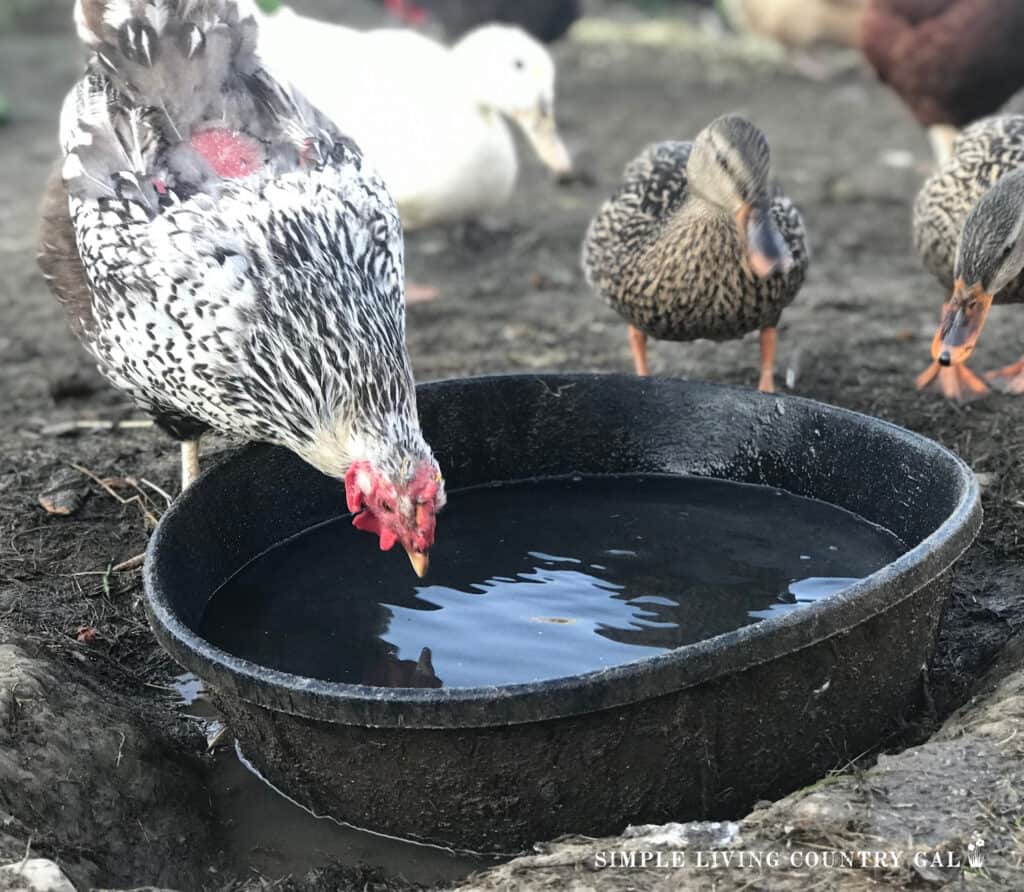
Do roosters get hen-pecked?
Yes. Roosters, like hens, are social animals with their social hierarchy and pecking order. Hen-pecking is a common occurrence, which can cause injuries and stress in roosters. Dominant and aggressive hens can cause significant damage to a rooster’s comb, wattle, or eyesight. Provide separate spaces for roosters and hens to avoid any aggressive behavior and prevent injuries.
More Henpecking Resources:
- How to Stop Hen Pecking Before it Starts
- Help for Hen Pecked Chickens
- How to Safely Add a Rooster to Your Henhouse
Overall it’s crucial to recognize the different symptoms of a sick or injured rooster. Watch for signs that something is off and quarantine when necessary to allow your rooster time to recuperate so he can rejoin the flock.
With the right care and attention, roosters can live a long, healthy life and continue to protect their backyard flock.
More Chicken Health Resources:
- Curly Toe in Chickens
- Chicken Feathers Falling Out
- What is an Egg Bound Chicken, and how can you help?
